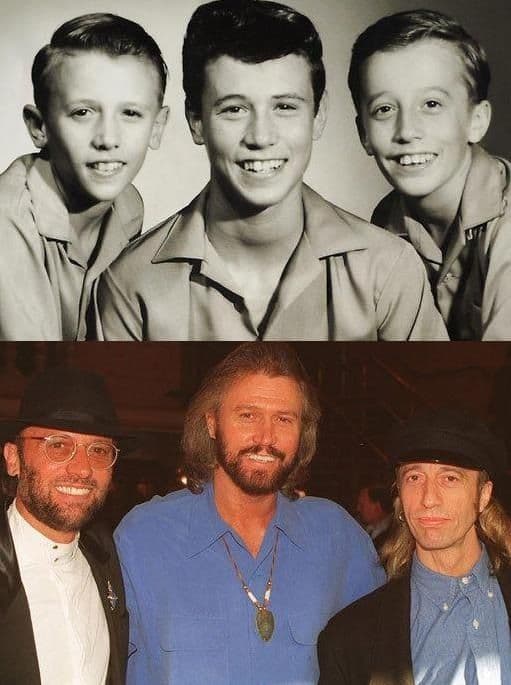
A Divine Melody: The Bee Gees’ “Too Much Heaven” Soars with Love and Philanthropy
As the late 1970s wound down, an era perhaps best remembered for its shimmering disco balls and infectious rhythms, one group stood head and shoulders above the rest, crafting a sound that transcended fleeting trends and etched itself into the very fabric of popular music: The Bee Gees. Their harmonious blend of falsetto vocals, intricate songwriting, and undeniable charm had already conquered the world, but it was in 1978, amidst the continuing fervor of Saturday Night Fever, that they delivered a track that felt less like a song and more like a whispered prayer – the magnificent “Too Much Heaven”.
Released as a single in October 1978, “Too Much Heaven” wasn’t just another hit for the brothers Gibb; it was a testament to their enduring artistry and, remarkably, a philanthropic endeavor. This tender ballad, with its ethereal beauty and deeply felt emotion, quickly ascended the charts, reaching a commendable number 3 on the Billboard Hot 100 in the United States. Its international appeal was equally undeniable, charting strongly across the globe and solidifying its place as another classic in their already legendary discography. For those of us who lived through that vibrant period, “Too Much Heaven” wasn’t merely a song on the radio; it was a soothing balm, a moment of gentle reflection amidst the upbeat tempo of disco, reminding us that even in the most energetic of times, there was always room for profound, heartfelt sentiment.
The story behind “Too Much Heaven” is as compelling as the song itself, interwoven with both creative inspiration and a generous spirit. The track was initially conceived for the “Sgt. Pepper’s Lonely Hearts Club Band” film soundtrack. However, as often happens with true artistry, the song took on a life of its own, deemed too special to be merely a soundtrack cut. It became the lead single from The Bee Gees’ upcoming 1979 album, “Spirits Having Flown”. What truly sets this song apart, though, is its direct connection to UNICEF. The Gibb brothers, deeply moved by the plight of children worldwide, pledged all worldwide royalties from “Too Much Heaven” to the United Nations Children’s Fund. This act of profound generosity, a remarkable commitment from artists at the height of their fame, elevated the song beyond mere entertainment to a beacon of hope and compassion. It’s a detail that, even after all these years, continues to resonate, adding an extra layer of warmth to every listen. We weren’t just enjoying a beautiful melody; we were, in some small way, contributing to a noble cause.
At its core, “Too Much Heaven” is a poignant exploration of love, not just as a fleeting emotion, but as an overwhelming, almost divine experience. The lyrics speak of a love so profound it feels like “too much heaven,” a blessing almost too good to be true. It’s about the exquisite vulnerability that comes with deep connection, the fear of losing such a precious gift, and the overwhelming joy of its presence. For many older listeners, this song evokes a powerful sense of nostalgia for past loves, for the intensity of youthful affection, and for the enduring power of relationships that have stood the test of time. It’s a song that invites introspection, prompting us to reflect on the loves that have shaped our lives, the moments of pure bliss, and perhaps even the bittersweet pangs of what might have been. The lush instrumentation, featuring a delicate piano melody, soaring strings, and, of course, the unmistakable harmonies of Barry, Robin, and Maurice Gibb, creates an almost ethereal soundscape that perfectly complements the lyrical sentiment. It’s a musical embrace, drawing the listener into a world of profound emotion, a gentle reminder that love, in its purest form, is indeed a touch of the divine. And as the decades have rolled by, the message of “Too Much Heaven” remains as timeless and as relevant as ever, a melodic testament to the enduring power of love and the quiet beauty of human connection.